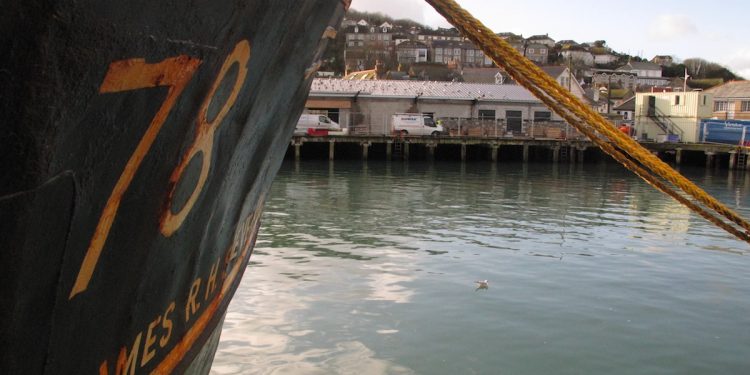The All Party Parliamentary Group on Fisheries last week held a virtual meeting to discuss the factors that affect the health and wellbeing of coastal communities, and how they are being addressed. The webinar was one of the APPG’s best-attended events to date. Five presentations and a subsequent Q&A led to a vibrant discussion on how policy, community and local initiatives can help improve the welfare of fishermen and their families.
The panel covered everything from the causes of welfare troubles, to solutions to tackling them, to personal stories of success and the difficulties along the way. Fishermen face a range of challenges to wellbeing, some common to many industries and others felt exclusively by the fishing sector.
‘Not only is fishing a dangerous occupation, but coastal communities are at the forefront of social, economic, political and environmental changes that can have implications for people’s wellbeing,’ said Rachel Turner of the University of Exeter.
‘These include impacts on mental and physical health, as well as on financial security, life satisfaction and social relationships,’ she said, drawing on her research into the causes of poor wellbeing for fishermen.
‘Our research suggests that fishers experience multiple constraints to accessing support. Changes in service provision to enable more flexible delivery that fits the working patterns of fishers can help, and there are some great examples now of specialised provision such as quayside health and dental checks that are providing accessible services,’ she said, commenting that as well as providing support, it’s important to address the stressors that affect the wellbeing of fishers and their families.
‘Research suggests that factors such as changing regulations and uncertainty about the future are associated with greater levels of psychological distress among fishers. Fisheries governance can help support coastal communities by incorporating an understanding of these challenges and considering the wider social context of fisheries.’
The meeting heard that hardships can extend to the entire community, including fishermen’s relatives and others connected to the industry.
‘Many coastal communities are among the most economically deprived areas of the UK,’ said David Dickens of The Fishermen’s Mission, who kicked off presentations.
‘For fishing communities, uncertainty of income and employment, and the unique lifestyle pressures they face lead to a range of wellbeing issues including financial hardship, disjointed family relationships, and physical and mental health issues.’
Many of these pressures have increased in recent months.
‘With so many uncertainties around the future of the fishing industry, on top of the pandemic, there has been an increase in anxiety and depression amongst this tight-knit fishing community,’ said Peter Frewer of SeaFit’s FishWell project, who spoke about their on-the-ground work in Norfolk and Suffolk.
Speakers presented on a number of initiatives around the UK that are helping to address these issues.
‘Changes in service provision to fit the working patterns of fishers can help, and there are some great examples now of specialised provision such as quayside health and dental checks that are providing accessible services,’ Rachel Turner commented.
Natalie Belt spoke about one such project on the Holderness coast, where she works as a health trainer.
‘SeaFit, in collaboration with Humber Teaching NHS Foundation Trust, is directly providing harbourside access to dental health, mental health and physio services including health checks delivered via a mobile health vehicle,’ she said.
Similarly, the FishWell project, also supported by SeaFit, uses on-the-quayside services to help fishermen address mental health issues. There were a number of suggestions on the table about how things could be improved.
‘More flexible arrangements for fishermen and their families to access health and wellbeing services would be welcome,’ said David Dickens. ‘So would better understanding of the particular nature of fishing work within social welfare policies, especially in ensuring that fishing families can access benefits readily for short periods – when poor weather or fishing limitations lead to financial difficulties.’
Since there are strong overlaps between financial security and welfare, supporting the UK’s fishing industry through consumption can have a positive influence.
‘Fishing communities would greatly benefit from the UK general public being persuaded to eat more UK seafood,’ said Derek Cardno, of the Scottish Fishermen’s Association, who shared his experiences at the meeting.
‘If demand does increase, coastal communities would require better infrastructure to keep the supply chain moving,’ he said, commenting that the pandemic has either escalated or highlighted issues within the fishing industry and markets.
‘An individual’s welfare and wellbeing is hugely affected by income to pay the bills and feed the family regardless of the line of work you are in. For the majority of UK fishermen that are self-employed and/or share fishermen, they have seen not only their business suffer greatly but have lost their income overnight. Many fishermen have struggled to access funding streams to sustain themselves over the pandemic,’ Derek Cardno said.
‘Fishing communities are traditionally smaller tight-knit groups that pull together in difficult times. We in the UK do not eat enough seafood caught in our own waters, as the finest seafood is exported. With the loss of these markets, communities have been supporting their own fishermen by buying direct from the boats. Through spreading the word on social media this new marketplace to sell their products has moved from being local to inland. As people start to taste and enjoy locally caught seafood it has enabled fishermen to go back to sea.’









